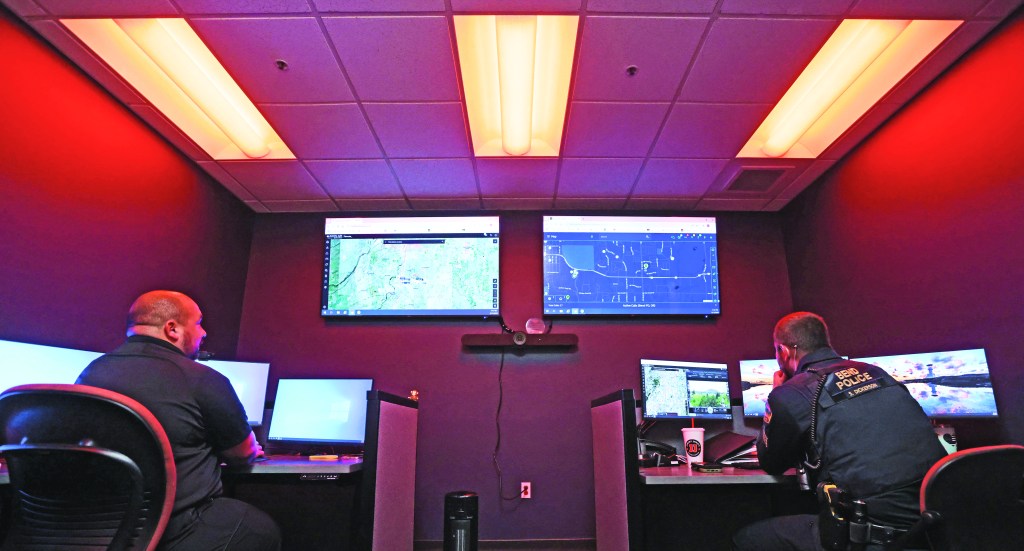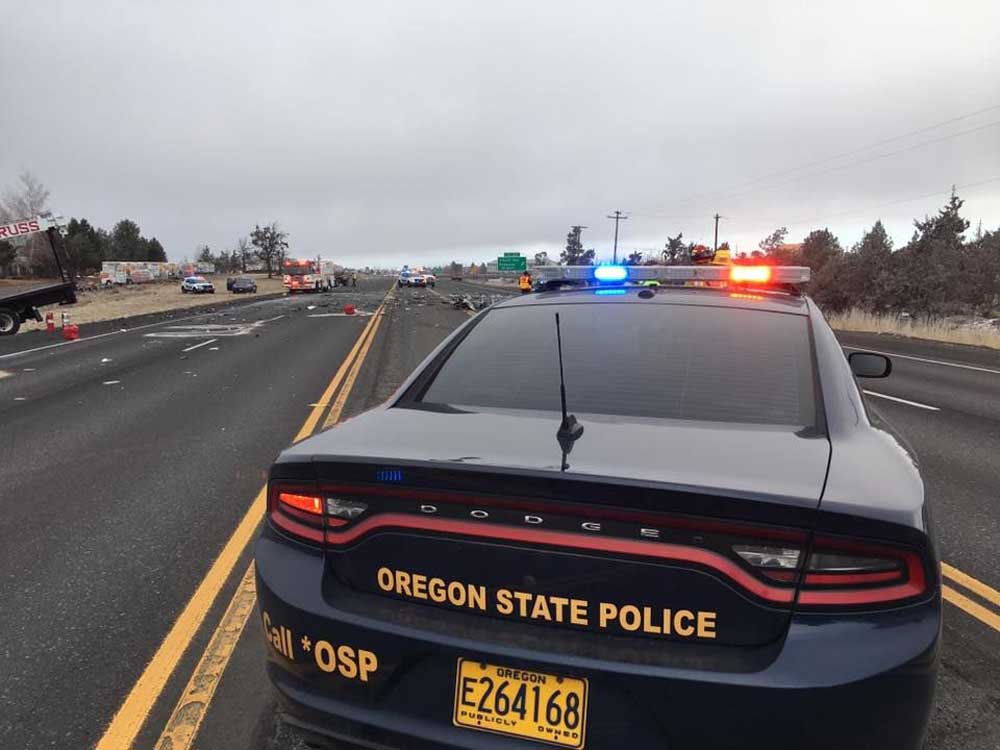Bend Police: More than 500 cameras registered to Connect Bend private camera network at 138 locations
Published 12:53 pm Friday, May 16, 2025

- Officer Dallas Wilson, left and Sgt. Scott Dickerson work in the ARTIC at the Bend Police Department in Bend. 05/15/25 (Dean Guernsey/The Bulletin)
Three months after the Bend Police Department introduced the Connect Bend community camera registry, community members have registered more than 480 private security cameras at 138 addresses, enhancing the department’s digital infrastructure and paving the way for a more comprehensive camera network in the future.
The registry is designed to reduce the need for officers to physically canvass neighborhoods where private security cameras are already registered. Instead, law enforcement personnel can contact camera owners directly via email to request video footage relevant to investigations. Participation in the program is entirely voluntary; registrants are only asked to provide their name, address, and email address.
Officer Brian Beekman, who is in charge of the police department’s Area Real Time Information Center (ARTIC) that gives officers access to the camera registry, acknowledged that there have not yet been any instances where the Connect Bend system directly resulted in an arrest, but he remains confident in the program’s potential. In a city of more than 100,000 people, 138 locations still represents a very low coverage rate, he said, and so far officers have only reached out to about 10 residents in the network.
“I remain optimistic,” Beekman stated. “My optimism is based on hundreds of past cases where, after extensive door-to-door efforts, we ultimately located a single piece of video evidence that proved critical. While we haven’t yet recorded a case solved directly through the Connect Bend program, I’ve been encouraging officers to actively utilize the system. I believe we will see tangible results in the near future.”
Beekman said one of the most frustrating things about living in the digital age is the time it takes to obtain crucial information from community members who may not even know they captured a crime on their private security cameras. This network could speed up that process, allowing detectives to solve crimes more quickly and more efficiently.
“For instance, we had a shooting — fortunately without injuries — at an apartment complex late last summer. We were aware of cameras located directly along the suspect’s escape route, yet it took us two months to acquire the footage,” Beekman said. “We couldn’t resolve the case until the day we finally obtained the video, which showed the suspect in the area. That evidence allowed us to identify and arrest the individual. That, to me, is a powerful example of what timely access to video evidence can achieve.”
Sheila Miller, Bend Police Department spokesperson, added that the network could also be used to free up resources in an already lean department.
“A notable example is the Evelyn Weaver homicide,” said Miller. “In that case, the major crimes team was activated and officers spent significant time walking door to door throughout the neighborhood because many residents were not home. If a system like this had already been in place, one officer could have handled those outreach efforts digitally, potentially allowing the rest of the team to concentrate on other critical investigative leads and possibly resolve some of the missing pieces more quickly.”
Following the discovery of Weaver’s body in her apartment in 2023, Bend Police issued a public request for video footage that might assist in identifying a suspect. Due to legal restrictions surrounding the extradition of 25-year-old Canadian citizen Cole Nikolaus Sinclair, Miller was unable to confirm whether any footage was recovered or whether it played a decisive role in identifying Sinclair as a suspect. However, the incident serves as an example of how the camera registry could be employed in future investigations.
The online registry is supported by Fusus, the same technology company that provides the Bend Police Department with digital evidence storage and body-worn camera systems for officers. The Fusus platform — which includes camera network integration, body camera management, incident response tools, and the community registry — costs the department approximately $75,000 per year, according to Miller.
“It’s a level of security that’s been found to be adequate for criminal justice information through our IT assessment before we even enter into an agreement with a contractor, so I feel confident in the security of that information,” Beekman said.
To register for the Connect Bend program, residents can visit the Bend Police Department’s website. The process takes approximately one minute through a secure portal. The information submitted can only be accessed by law enforcement officers and does not give direct access to the security cameras.
If residents or businesses want to give Bend Police access to view their camera footage on-demand, there is a higher level registration that allows residents to integrate a small device so that law enforcement can directly access footage in the event of an incident. More than 120 cameras have been registered with this higher-level access.








